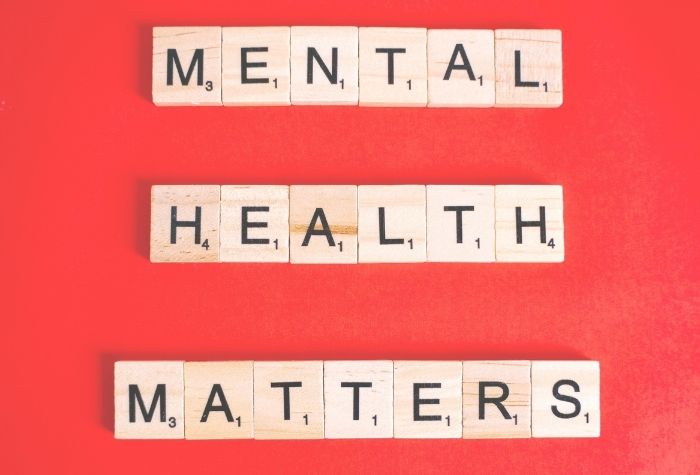Mental health includes our emotional, psychological, and social well-being. Per the CDC, mental health affects how we think, feel, and act. It also helps determine how we handle stress, relate to others, and make healthy choices. Mental health is important at every stage of life, from childhood to adolescence through adulthood.
Related article: What is Mental Wellbeing, and How Is it Different From Mental Health?
Even though mental health awareness in today’s society is improving, mental health is not yet fully understood, and this leads to harmful misconceptions.
Fallacies and misinterpretations that most mental health conditions are dangerous and that they leave people unstable produce negative stereotyping that causes people to suffer in silence instead of seeking professional help.
The Invisibility of Mental Health Problems
A common myth is that mental health problems are caused by personality weaknesses or character flaws and that if people try hard enough, they can simply will the condition away. This is far from the truth. People, including the millions of people affected by mental health conditions, simply do not “snap out of it” by thinking their way out of biological factors, life experiences, or family history.
The facts are that millions of people are affected by mental illness each year across the country, and many of these people “just like you work, perform, create, compete, laugh, love and inspire every day.” Mental health is invisible to the human eye. Unlike many physical ailments, we cannot see mental health disorders such as anxiety, or depression, nor the challenges that come with these conditions.
Contributing Risk Factors
Many risk factors contribute to mental health problems, but the most common (per mentalhealth.gov) are:
- Biological factors, such as genes or brain chemistry
- Life experiences, such as trauma or abuse
- Family history of mental health problems
The Main Groups of Mental Disorders
There are hundreds of disorders identified in the DSM-5 (Diagnostic and Statistical Manual of Mental Disorders), which is a publication used by mental health professionals in the United States to define and classify mental conditions.
Some of the most common groups of mental disorders (and common disorders within each group) are:
- Mood disorders (depression or bipolar disorders)
- Anxiety disorders (generalized anxiety, obsessive-compulsive, panic, post-traumatic stress, or social phobia)
- Personality disorders (antisocial, avoidant, borderline personality, narcissistic, obsessive-compulsive, or paranoid)
- Psychotic disorders (schizophrenia, delusional, or drug-induced)
- Eating disorders (anorexia nervosa, bulimia nervosa, binge eating, pica, or avoidant/restrictive)
- Trauma-related disorders (acute stress, uncomplicated PTSD, complex PTSD, comorbid PTSD, or reactive attachment)
- Substance abuse disorders (the use of opioids, hallucinogens, alcohol, marijuana, nicotine, sedatives, or stimulants)
Early Warning Signs
Do you know someone you believe is living with mental health problems, or do you feel you are experiencing mental health struggles or illness yourself?
If you are experiencing one or more of the feelings or behaviors, it can be an early warning sign that you need to seek mental health care:
- Severe mood swings (highs and lows) that are all-consuming and interfere with daily living
- Eating or sleeping too much or too little
- Feeling numb or that nothing in life matters (including yourself)
- Chronic fatigue
- Unexplained muscle tension, body aches, or pains
- Feeling helpless or hopeless
- Pulling away from people and the things that you typically enjoy
- Abusing nicotine, alcohol, or drugs
- Frequently feeling anxious (fear, worry, uneasiness)
- Frequently feeling confused or forgetful
- Feeling sad and upset
- Intrusive repetitive thoughts that are persistent
- Hearing voices in your head
- Believing in something untrue, and feeling that it is highly important or meaningful
- Thoughts of harming yourself or others
- Inability to complete daily tasks, such as self-care, taking care of your children, or going to work or school
Prevention Does Help
Unfortunately, many people believe that mental health conditions cannot be prevented. But they can, in everyone, but especially in young children and our youth.
Prevention involves stopping mental health problems before they start. Prevention can benefit anyone in the community. The key to prevention is awareness. Awareness can be increased through programs that teach children and people about mental health and diminish stigmas that stop people from obtaining mental health care.
Secondary prevention involves supporting individuals with high-risk factors for mental health problems (such as biological factors, life experiences, and family history of mental health illness) to reduce the progression of mental health disorders. This process involves screening, early identification, and brief treatment.
Tertiary prevention helps people at a higher level that are living with mental health problems to remain well and to have a good quality of life.
Mental Health Care and Wellness
You can take simple measures to maintain positive mental health, and much of that wraps around self-care, such as physical activity, getting enough sleep, eating well, and avoiding drugs, nicotine, and the excessive use of alcohol.
Developing habits that keep yourself feeling positive and help you to cope with life’s challenges are also important factors in mental health care.
Keeping up with social connections and helping others are useful tools in maintaining mental wellness.
Above all, ensure that you get professional help if you need it. Forget the stigmas. It is a lie that seeking outside help for mental health is a weakness. There is strength in acknowledging the need for help.
Positive mental health care allows you to meet your full potential, cope with the stresses in life, work productively, and honor your value as a person. We ALL deserve that!
Related article: Taking Steps to Overcome Shame in Mental Health
We Are Here to Help
Western Tidewater Community Services Board is focused on giving the individuals we serve the necessary skills, confidence, and well-being to achieve what they define as their purpose in life.
We are a Community of Hope.
We’re here and ready to connect 24/7. We make access to professional, high-quality, wrap-around care convenient and easy – including Same Day Access for crisis intervention.






